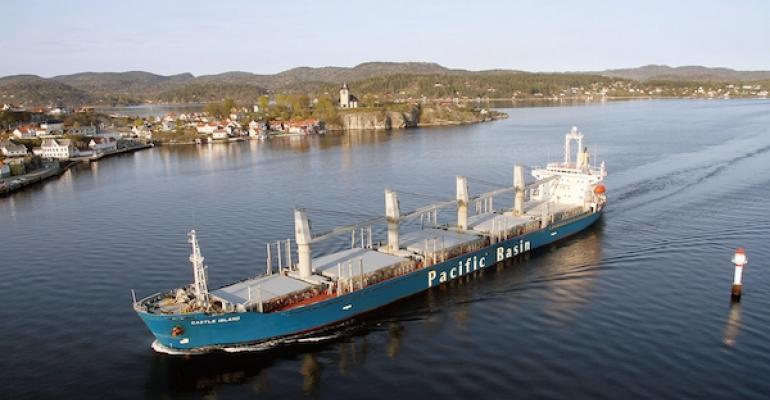While steadfastly maintaining that the market does not need newbuildings in the medium term, Berglund said PacBasin “continues to watch technological, fuel and regulatory developments closely”.
“These regulations will be beneficial to strong companies that have the ability to adjust and adapt to either way the industry goes,” he said, although PacBasin maintains its stated preference for a switch to low-sulphur fuel rather than the use of scrubbers.
He pointed out that the bigger the vessel and the more fixed its trading patterns, the easier it would be to make the decision to invest in scrubbers. Berglund noted however that with PacBasin’s smaller ships and typical non-fixed global trading patterns, a potential problem would be the unavailability of heavy fuel oil even if they were to install scrubbers.
Stating firmly that “we don’t think (the use of) scrubbers is very forward-looking”, Berglund went on to list the negative aspects of the devices, namely that they increase bunker consumption and maintenance costs, decrease cargo capacity do little to reduce other emissions such as nitrogen oxide and carbon dioxide and may even increase these emissions overall as operators are tempted to increase speeds with lower fuel prices.
The company would also continue to look at good quality secondhand ship acquisition opportunities, he said. Warning that extra capacity remains in the global fleet through potentially higher operating speeds as well as of the limited efficiency benefits from newbuildings compared to good quality Japnese-built secondhand ships, Berglund said the risk and payback time for newbuildings is currently excessive.
This was due to several factors such as uncertainties about how best ot comply with the 2020 sulphur cap, ballast water treatment systems, future price, types and availability of fuel and potential additional new regulations on other types of emissions.
Maintaining that secondhand prices continue to be attractive compared to newbuilding prices, Berglund noted that as the market started to move up, it made sense for the minor bulks specialist to acquire more owned ships to keep control of costs.
He stated that PacBasin still has capacity to employ any acquisitions it makes as it was using about 225 vessels currently although it only owned 106, thus allowing them to drop chartered-in vessels as the owned fleet expands.
Copyright © 2024. All rights reserved. Seatrade, a trading name of Informa Markets (UK) Limited. Add Seatrade Maritime News to your Google News feed.


